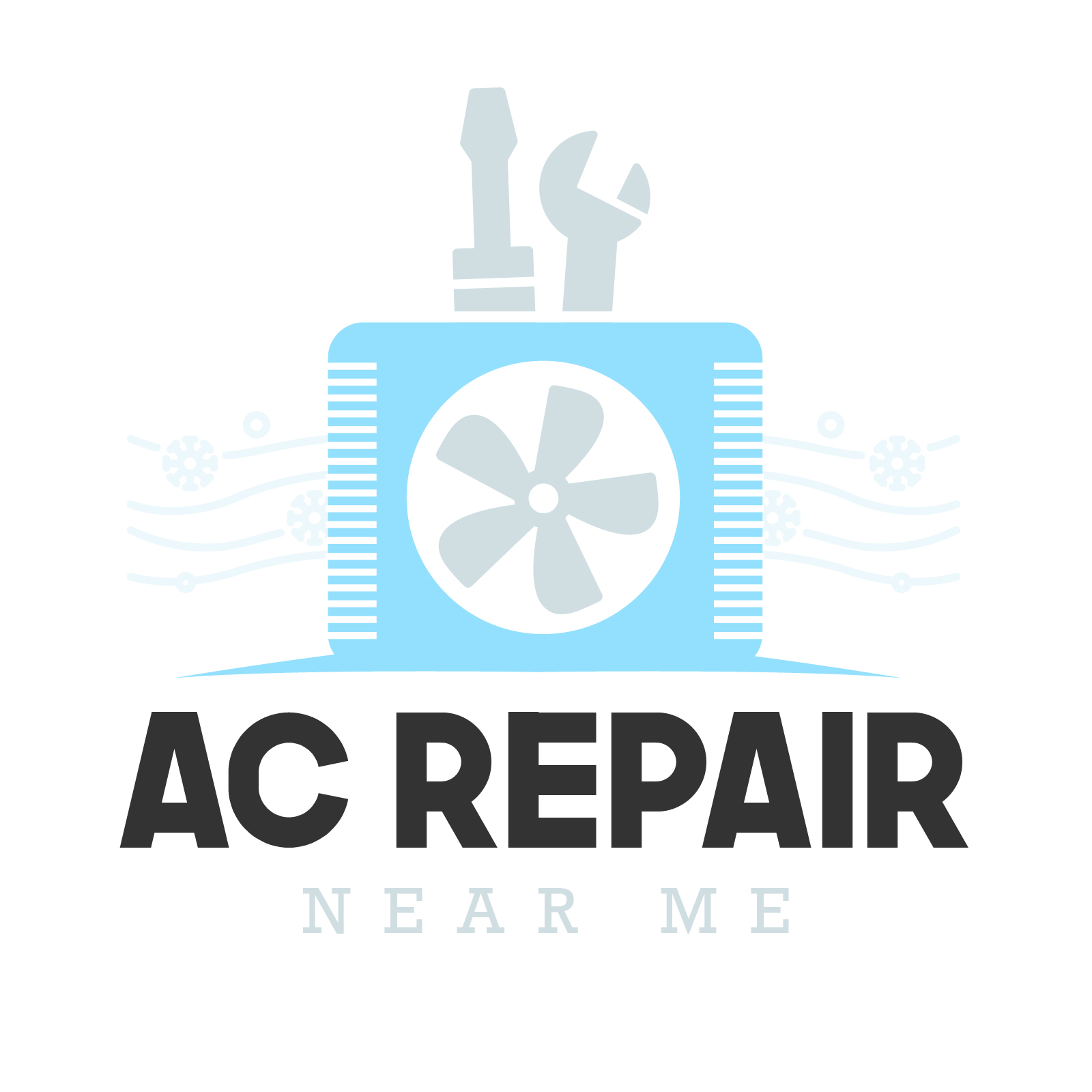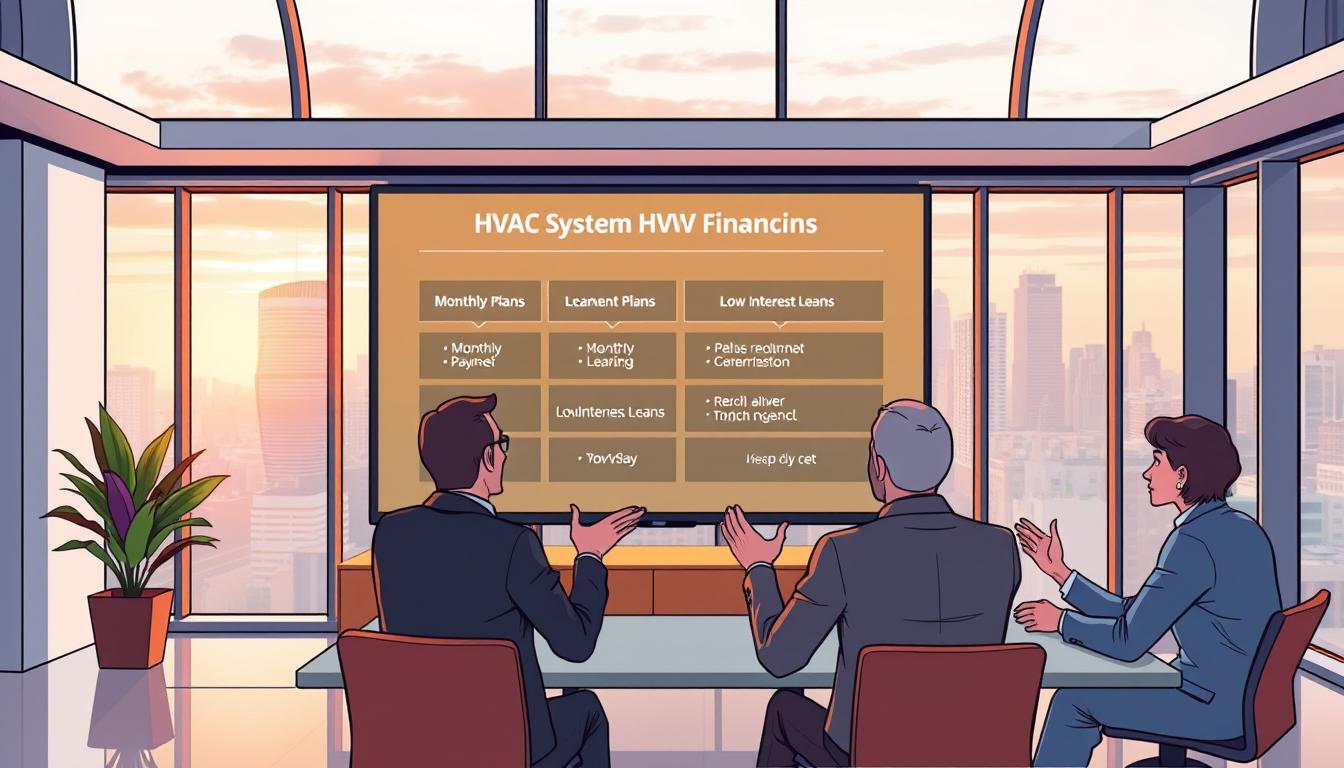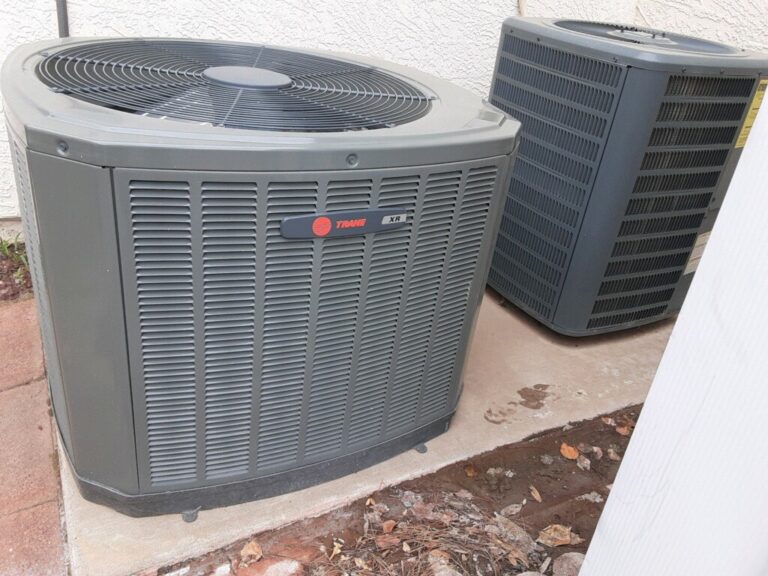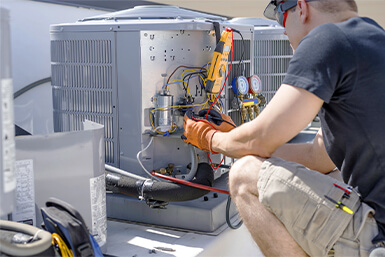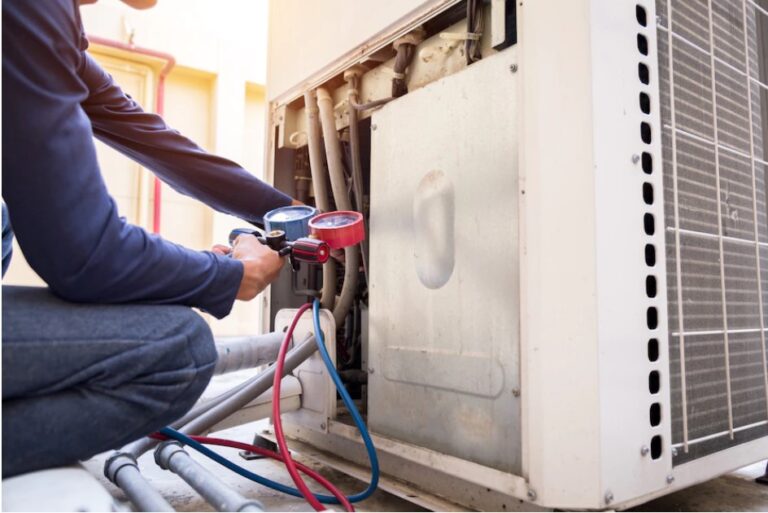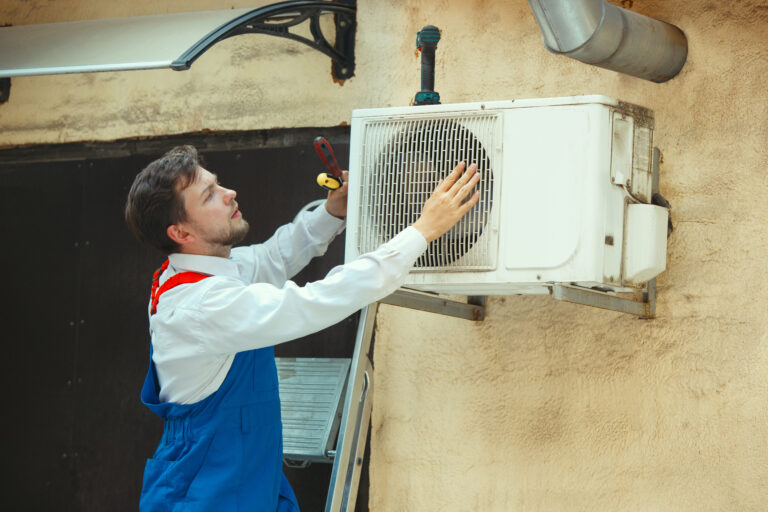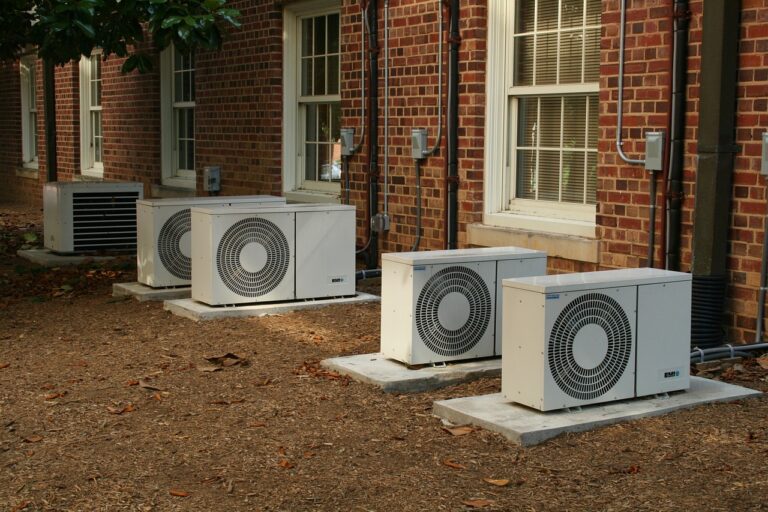Best AC Unit Financing Options Available in Arizona
Arizona’s extreme temperatures make a functioning air conditioning system essential for comfortable living.
However, the high cost of a new HVAC system, which can range from $5,000 to $12,500, often requires exploring financing options.
This comprehensive guide will explore the various financing solutions available to Arizona residents, helping you make an informed decision about how to pay for your cooling system without depleting your savings.
Understanding the full spectrum of available financing options can help balance immediate comfort needs with long-term financial planning.
Key Takeaways
- Various financing solutions are available for Arizona residents to purchase new air conditioning systems.
- The cost of a new HVAC system can range from $5,000 to $12,500.
- Financing options can help balance immediate comfort needs with long-term financial planning.
- Understanding the available financing options is crucial for making an informed decision.
- Different financing approaches may be suitable depending on your financial situation and credit score.
Understanding the Cost of New AC Units in Arizona
The cost of a new air conditioning unit in Arizona can vary widely based on several key factors. Understanding these factors is essential for homeowners to budget effectively and make informed decisions about their HVAC system.
Average Price Range for AC Systems in Arizona
The average cost of a new AC unit in Arizona can range from $3,000 to $7,000 or more, depending on the system’s size, efficiency, and brand. High-efficiency models with advanced features tend to be more expensive upfront but can offer significant long-term savings on energy costs.
| AC System Type | Average Cost | Energy Efficiency |
|---|---|---|
| Basic Unit | $3,000 – $5,000 | SEER 14-16 |
| High-Efficiency Unit | $5,000 – $7,000 | SEER 18-22 |
| Premium Unit | $7,000+ | SEER 24+ |
Factors That Affect AC Unit Pricing
Several factors can impact the price of a new HVAC system, including home size, existing ductwork condition, energy efficiency ratings, and installation complexity. The SEER rating significantly impacts pricing, with higher-efficiency units commanding premium prices but offering lower operating costs in Arizona’s hot climate.
- The brand and manufacturer of the AC unit create substantial price variations, with premium brands like Trane, Carrier, and Lennox typically costing more than economy options.
- Installation complexity affects overall pricing, with factors like difficult access, ductwork modifications, or electrical upgrades adding to the final cost.
- Additional features like zoning systems, air purification components, and smart home integration capabilities can add $1,000-$3,000 to your system cost but may provide better comfort and control.
Why Financing Your AC Unit Makes Sense
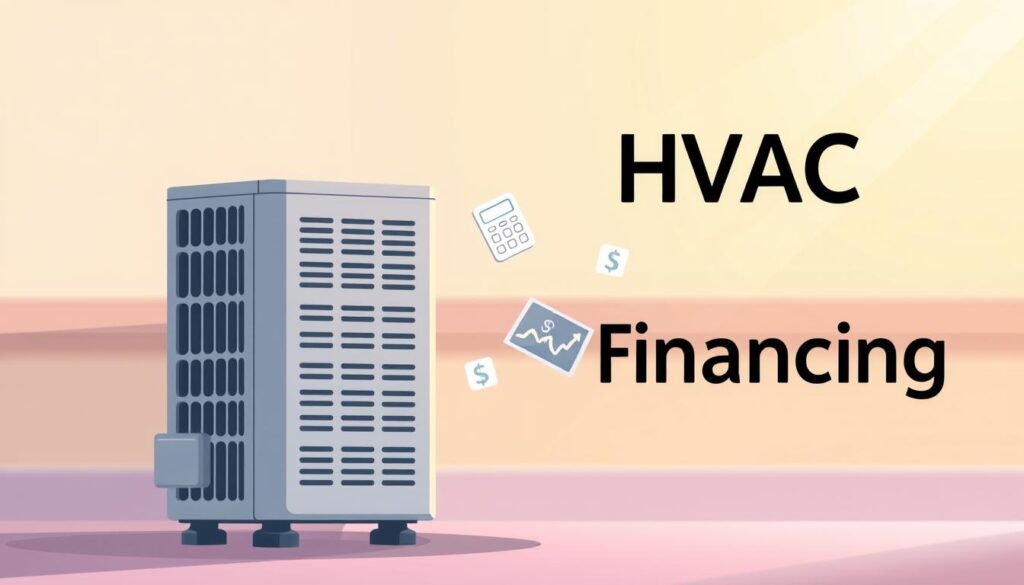
Arizona’s extreme temperatures make a functioning AC unit essential, and financing can help you get back to comfortable living quickly. When your AC fails, it can be more than just an inconvenience; it can be a health and safety issue, especially during the scorching summer months.
Understanding the benefits of financing your AC unit is crucial in making an informed decision. Financing allows you to spread the cost over time, making it more manageable and preserving your cash liquidity for other important financial goals or emergency preparedness.
Benefits of Financing vs. Paying Cash
Financing your AC unit offers several advantages over paying cash upfront. For one, it allows you to preserve your credit and maintain liquidity for other expenses. Additionally, when promotional financing options like 0% APR are available, it can be financially advantageous to finance rather than deplete your savings.
Moreover, financing enables you to invest in a more energy-efficient HVAC system that might be beyond your immediate budget. The long-term savings on your energy bills can often justify the financing costs.
When Financing Is the Right Choice
There are several scenarios where financing your AC unit makes sense. For instance, if your AC fails unexpectedly during an Arizona heatwave, financing can provide an immediate solution. It’s also a good option when you can secure favorable financing terms, such as low or 0% interest rates, or when preserving your cash for other financial goals is a priority.
| Scenario | Why Financing Makes Sense |
|---|---|
| AC unit fails during extreme temperatures | Immediate replacement is necessary for health and safety |
| Favorable financing terms available | Low or 0% interest rates make financing financially advantageous |
| Preserving cash liquidity is important | Maintaining cash for other financial goals or emergencies |
In conclusion, financing your AC unit can be a smart financial decision, especially when it comes to maintaining your health and safety during Arizona’s extreme weather conditions. By understanding your financing options and choosing the right time to finance, you can enjoy a comfortable living environment without straining your finances.
Key Factors to Consider Before Choosing AC Unit Financing Options
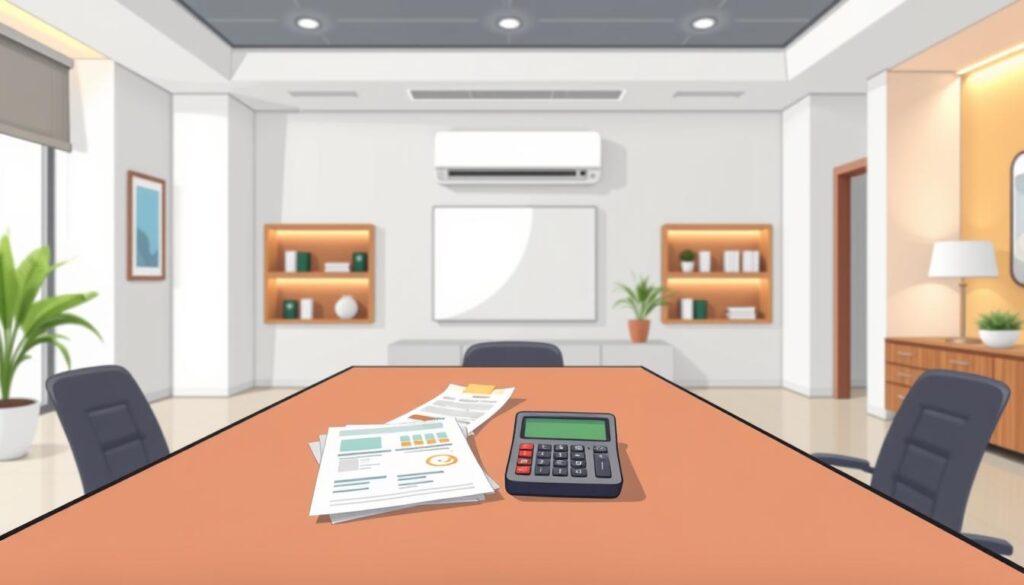
The process of selecting a financing option for your new AC unit can be daunting, but being aware of the key considerations can simplify your decision-making process. When evaluating different financing options, it’s essential to consider multiple factors to ensure you choose the best fit for your financial situation.
Credit Score Requirements
Your credit score plays a significant role in determining the financing options available to you. Lenders use credit scores to assess the risk of lending to you. A higher credit score can qualify you for better interest rates and terms. Typically, a credit score of 650 or higher is considered good for financing options.
Interest Rates and APR
Understanding the difference between interest rates and APR (Annual Percentage Rate) is crucial. The interest rate is the cost of borrowing, while the APR includes additional fees and charges. Comparing APRs from different lenders helps you understand the true cost of the loan. Look for competitive interest rates and APRs from your lender to ensure you’re getting the best deal.
Loan Terms and Monthly Payments
Loan terms and monthly payments are critical factors to consider. Longer loan terms may result in lower monthly payments but could cost more in interest over the life of the loan. It’s essential to balance your monthly payment amount with the overall cost of the loan.
Additional Fees to Watch For
Besides interest rates, there are other fees associated with AC unit financing. Some lenders charge origination fees, which can range from 1% to 10% of the loan amount. Other fees include late payment fees, prepayment penalties, application fees, and balance transfer fees if using a credit card for financing.
| Fee Type | Description | Typical Range |
|---|---|---|
| Origination Fee | Fee charged by the lender for processing the loan | 1% to 10% of the loan amount |
| Late Payment Fee | Fee charged for missing a payment | $25 to $50 or a percentage of the payment amount |
| Prepayment Penalty | Fee charged for paying off the loan early | Varies by lender |
Being aware of these fees can help you choose a financing option that minimizes additional costs. Consider setting up automatic payments to avoid late fees and carefully review the terms to understand any potential prepayment penalties.
Personal Loans for AC Unit Financing
For many Arizona homeowners, personal loans provide a straightforward and efficient way to cover the cost of a new AC unit. With the ability to borrow between $1,000 and $100,000, personal loans offer the flexibility to finance a wide range of HVAC systems.

How Personal Loans Work for HVAC Purchases
Personal loans are a type of unsecured loan that can be used to finance various expenses, including HVAC purchases. The interest rates on personal loans typically range from 6% to 36%, depending on the lender, loan amount, and borrower’s credit score.
Many online lenders allow borrowers to pre-qualify for a personal loan, giving them an idea of their loan rate and term before formally applying. This pre-qualification process does not affect the borrower’s credit score, making it a risk-free way to explore financing options.
Top Personal Loan Providers in Arizona
Arizona residents can choose from a variety of personal loan providers, including online lenders and traditional banks. Some top providers offer competitive interest rates and flexible repayment terms.
When selecting a lender, it’s essential to consider factors such as fees, loan terms, and the lender’s reputation. Borrowers should also check the lender’s requirements regarding income and credit score.
Pros and Cons of Personal Loans
Personal loans offer several benefits, including fast approval and funding, often within 1-3 business days. This quick turnaround is particularly valuable in Arizona’s hot climate, where a functional AC unit is crucial.
- Personal loans don’t put your home at risk if you struggle with payments.
- Fixed interest rates and terms create predictable monthly payments.
However, personal loans also have some drawbacks. The interest rates can be higher than those of secured loans, especially for borrowers with fair or poor credit. Additionally, some lenders charge fees, such as origination fees, which can increase the overall cost of the loan.
Home Equity Options: Loans and HELOCs

For many Arizona residents, tapping into their home equity is a viable option for financing air conditioning upgrades. Home equity financing allows homeowners to leverage the value they’ve built up in their property to cover significant expenses, such as installing a new AC unit.
Home Equity Loans vs. HELOCs Explained
Home equity loans and Home Equity Lines of Credit (HELOCs) are two primary options for homeowners looking to tap into their equity. A home equity loan provides a lump sum payment with a fixed interest rate and repayment term. In contrast, a HELOC offers a revolving line of credit that allows homeowners to draw funds as needed, with variable interest rates.
When deciding between the two, consider your financial situation and the loan terms offered by your lender. If you prefer predictable monthly payments, a home equity loan might be more suitable. However, if you need flexibility in your financing, a HELOC could be a better choice.
Using Your Home’s Equity for AC Financing
Using your home’s equity to finance a new AC unit can be a smart financial move, especially if you have a significant amount of equity built up and a stable income. This approach can provide the necessary funds for a high-efficiency AC system, potentially lowering your energy bills and increasing your home’s value.
Risks and Benefits of Home Equity Financing
Home equity financing offers several benefits, including lower interest rates compared to other financing options and potentially tax-deductible interest. However, it’s crucial to understand the risks involved, such as the possibility of foreclosure if you default on the loan. Additionally, HELOCs come with variable rates, which can lead to increased monthly payments if interest rates rise.
- Benefits:
- Home equity options typically offer the lowest interest rates among all AC financing options.
- Longer repayment terms result in lower monthly payments.
- Interest paid may be tax-deductible when used for home improvements.
- Risks:
- Your home serves as collateral, risking foreclosure upon default.
- HELOCs have variable interest rates that could increase significantly.
Manufacturer and Dealer AC Unit Financing Options
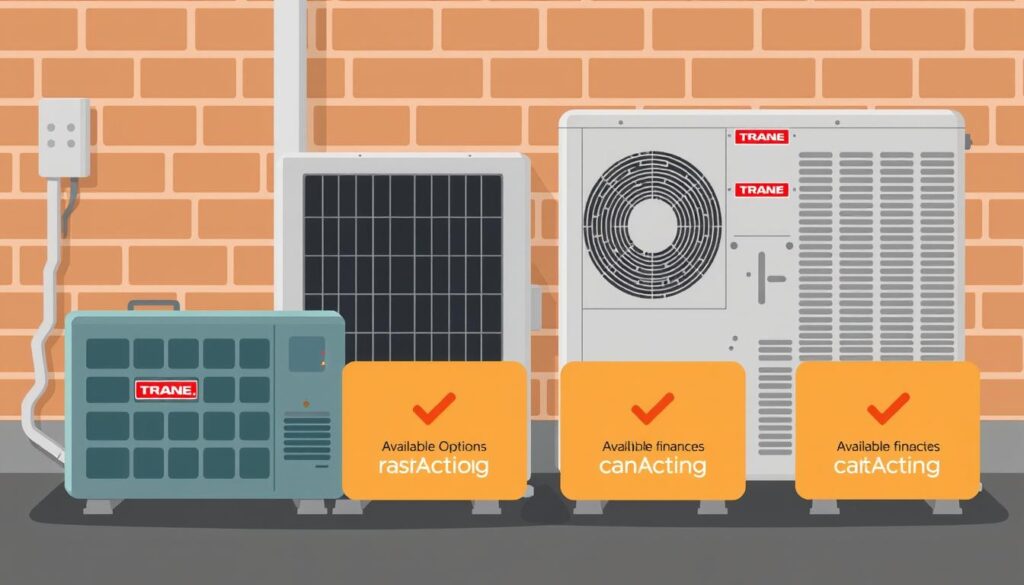
For homeowners in Arizona, understanding the financing options available from manufacturers and dealers is crucial for making an informed decision. Many manufacturers, such as Trane, offer special financing programs that can make purchasing a new AC unit more affordable.
Trane’s Special Financing Programs
Trane is a well-known brand in the HVAC industry, and they offer various financing options to their customers. Their special financing programs are designed to provide customers with flexible payment plans and competitive interest rates. By choosing Trane’s financing options, homeowners can enjoy the benefits of a new, energy-efficient AC unit while managing their budget effectively.
Trane’s financing programs often include promotional offers such as 0% APR for a certain period, making it an attractive option for those looking to upgrade their AC units without a significant upfront cost.
Other Manufacturer Financing Deals in Arizona
Apart from Trane, other manufacturers also offer financing deals in Arizona. These programs may vary in terms of interest rates, loan terms, and promotional offers. Homeowners can explore these options to find the one that best suits their needs. It’s essential to compare the different financing deals and understand the terms and conditions before making a decision.
Some manufacturers may offer deferred interest financing, where no interest is charged if the loan is paid off within a specified period. However, it’s crucial to be aware of the potential risks associated with deferred interest financing, such as retroactive interest charges if the loan is not paid off on time.
What to Watch Out For with Dealer Financing
When considering dealer financing options, there are several factors to be aware of. Many dealer financing options use deferred interest rather than true 0% APR, meaning that if you don’t pay the full amount by the end of the promotional period, interest will be charged retroactively on the entire original purchase amount.
Additionally, some dealers may mark up equipment prices to offset “free” or low-interest financing promotions. It’s also important to note that credit cards used for dealer financing can temporarily lower your credit score by increasing your credit utilization ratio. To learn more about AC repair and maintenance services in Arizona, visit AC Repair and Maintenance Services in.
Credit Card Options for AC Unit Purchases
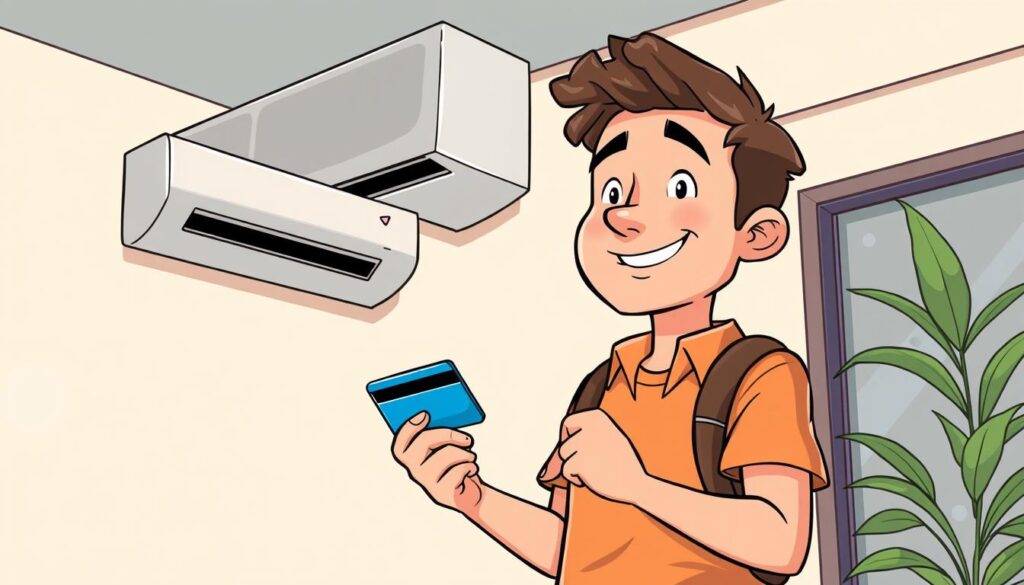
Credit cards can be a convenient way to pay for AC unit purchases, especially if you can secure a 0% APR promotional offer. This financing option allows you to spread the cost of your new AC unit over several months without incurring additional interest charges.
0% APR Promotional Offers
Many credit cards offer 0% APR promotional periods, typically ranging from 15 to 21 months, during which you won’t be charged interest on your purchase. To avoid interest charges, it’s crucial to pay off the balance during this promotional period. If you fail to do so, you may be subject to the card’s regular interest rate, which can be as high as 28.99% APR.
For example, if you purchase a $3,000 AC unit using a credit card with a 0% APR promotional offer for 18 months, you’ll need to make monthly payments of at least $167 to pay off the balance before the promotional period ends.
Using Existing Credit Cards vs. Store Cards
When considering credit card financing for your AC unit purchase, you can either use an existing credit card or apply for a store card. Existing credit cards may offer more flexible terms and lower interest rates, while store cards might provide special promotions or discounts for the specific retailer.
However, be aware that using a credit card for a large purchase like an AC unit can temporarily lower your credit score due to high credit utilization.
Credit Card Financing Pitfalls to Avoid
While credit card financing can be a convenient option, there are several pitfalls to watch out for. These include:
- High credit utilization from a large AC purchase can temporarily lower your credit score by 20-50 points.
- Deferred interest promotions can charge retroactive interest on the entire original purchase if not paid completely by the deadline.
- Minimum payments are typically not sufficient to pay off the balance during promotional periods.
- Late payments can incur fees and immediately terminate promotional rates.
- Balance transfer fees can add hundreds of dollars to your financing costs.
By understanding these potential pitfalls and using credit card financing wisely, you can make an informed decision about whether this option is right for your AC unit purchase.
Arizona-Specific Rebates, Tax Credits, and Incentives
Arizona residents can benefit from various incentives when installing new AC units, making the process more affordable and environmentally friendly. While you will still need to finance your HVAC installation, knowing that you may get some money back through a rebate or have a lower tax bill because of the tax credits can be encouraging.
Federal Tax Credits for Energy-Efficient AC Units
The federal government offers tax credits for energy-efficient AC units, which can significantly reduce your tax liability. To qualify, your new AC unit must meet specific energy efficiency requirements. Save your receipt and the manufacturer’s certification statement confirming your system meets these requirements.
When filing your annual tax return, you’ll need to complete IRS Form 5695 to claim the credit. This process can help you save money on your taxes while promoting energy efficiency in your home.
Arizona Utility Company Rebates
Arizona utility companies offer rebates for customers who install energy-efficient AC units. These rebates can vary depending on the utility company and the specific AC unit you choose. To verify current rebate amounts and eligibility requirements, visit your utility company’s website or rebate portal.
Some rebate programs require pre-approval before installation, so it’s essential to check the requirements with your contractor or utility company before purchasing your system.
How to Claim Available Incentives
Claiming rebates and tax credits involves a few straightforward steps. For federal tax credits, you’ll need to file the appropriate paperwork with your tax return. For utility company rebates, you typically need to apply through participating contractors who will handle the paperwork on your behalf.
To maximize your savings, visit our rebates, savings, and offers page for qualifying products, available tax credits, and rebates for your area. You can also check the manufacturer’s website for additional rebates and incentives.
| Incentive Type | Requirements | Benefits |
|---|---|---|
| Federal Tax Credits | Energy-efficient AC unit, manufacturer’s certification statement, IRS Form 5695 | Reduced tax liability |
| Arizona Utility Company Rebates | Energy-efficient AC unit, application through participating contractors | Cash rebates |
| Manufacturer Rebates | Proof of purchase and installation within specific timeframes | Cash rebates |
Making the Right AC Unit Financing Decision for Your Situation
Financing your new HVAC system can be a straightforward process if you know your financing options. As you’ve explored throughout this article, various factors influence the best choice for your situation, including your credit score, income, and long-term housing plans.
For homeowners with excellent credit (740+), manufacturer financing with 0% APR promotions or home equity options typically provide the lowest overall costs for AC financing in Arizona. On the other hand, those with fair credit (580-669) may find personal loans from lenders like Upgrade or Upstart more accessible, though rates will be higher than those offered to prime borrowers.
When deciding, consider your timeline—if you need immediate AC replacement, personal loans or credit cards offer faster funding than home equity options. It’s also crucial to evaluate your long-term housing plans; if you might sell within 5 years, avoid long-term financing that could complicate a future sale.
To make a truly informed decision, calculate the total cost of ownership by combining purchase price, financing costs, expected energy savings, and available tax credits or rebates. For those with substantial home equity and plans to stay in their home long-term, home equity loans typically offer the lowest interest rates and potential tax advantages.
For more detailed information on financing your new air conditioner, you can visit our blog page for additional resources and guidance.
By carefully considering these factors and exploring your financing options, you can make a decision that aligns with your financial situation and goals.
